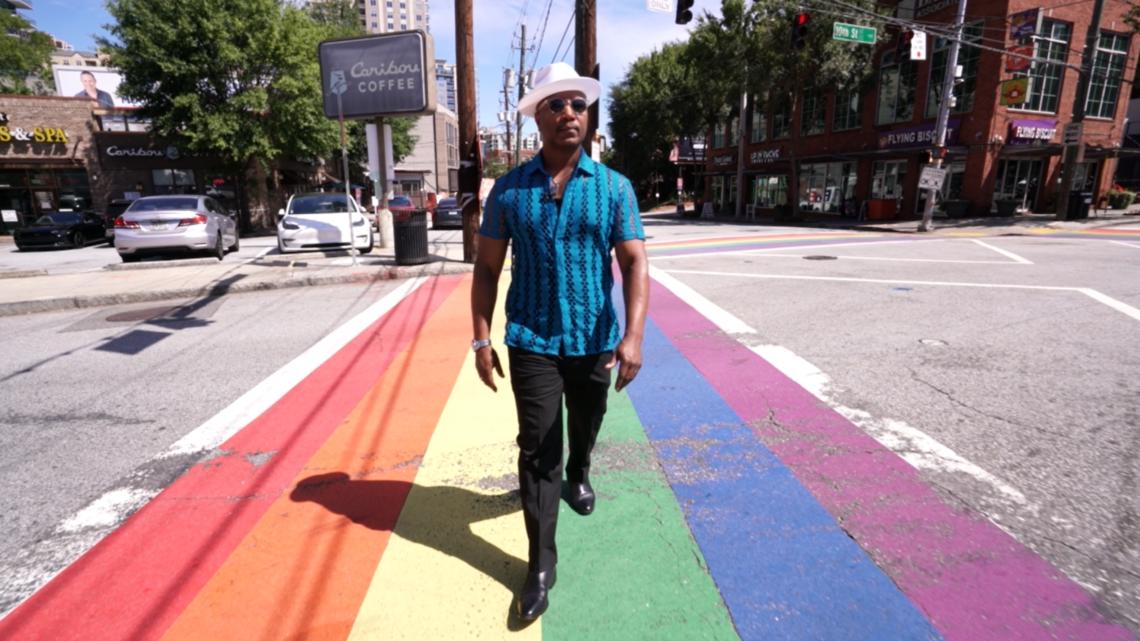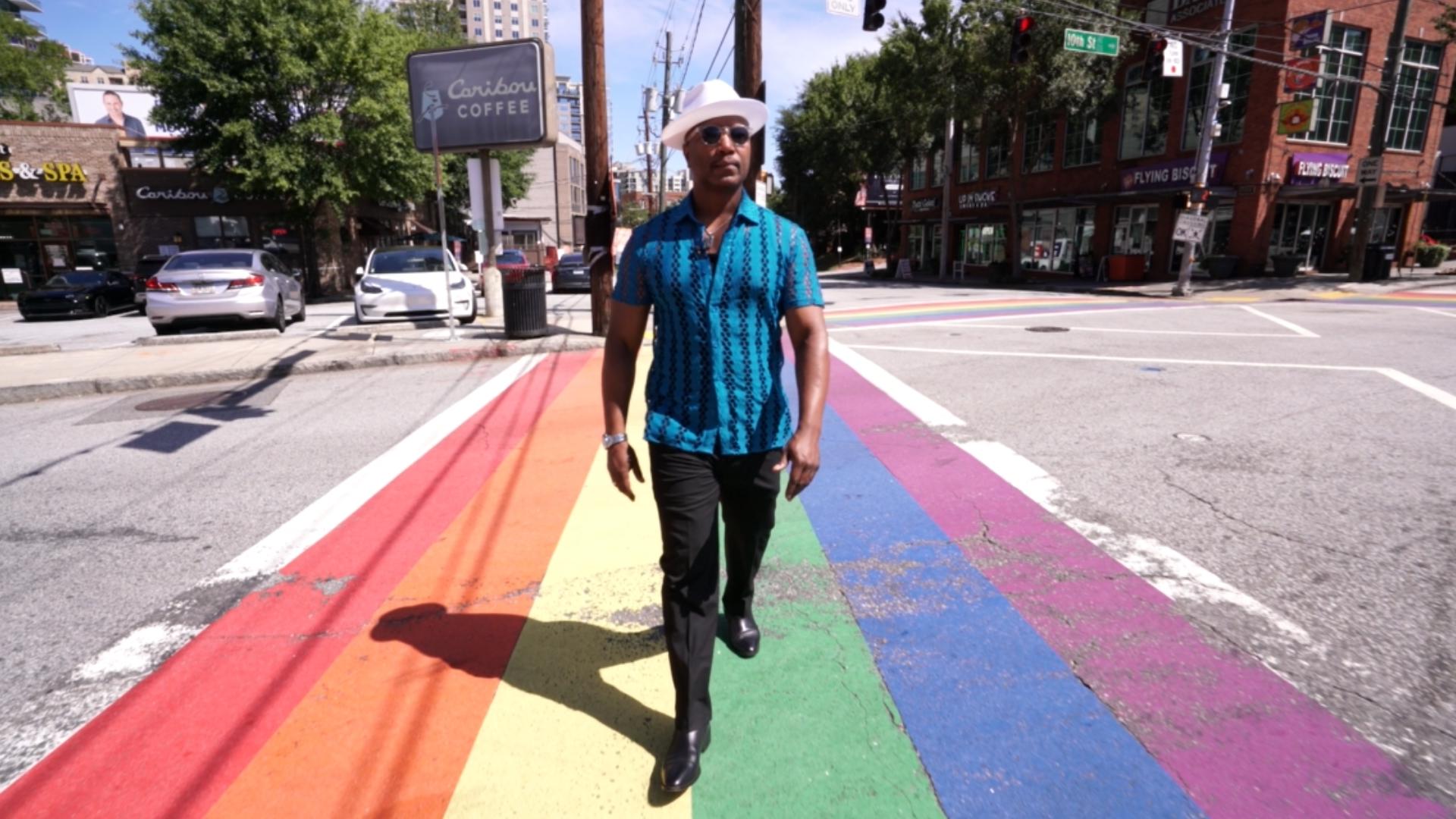ATLANTA — Anaré Holmes became a firefighter to serve his community and reinvent himself. It wasn't his dream to run into burning buildings for a living, but as he grew into the profession, it gave him a clearer understanding of his identity.
"The more that I took that journey, I began to realize that the fire service was able to give me, so to speak, a confidence level with my own masculinity," he said.
During his training, Holmes was among the top in his class, he said, which made him feel that he could "stand even stronger" than ever. He described that growing up as gay sometimes made him feel less masculine.
As Holmes navigated his masculinity with firefighting, he also explored about how he could be the truest version of himself. Now a metro Atlanta firefighter, he's become a figure in the community not only for his advocacy in LGBTQ+ spaces but as a local hero helping to save lives.
"I'm reimagining what American heroism looks like because people definitely have an image in their mind of what a firefighter looks like," he said. "Anybody can be a hero because, at the end of the day, it's about your display of courage, right? That's what makes you a hero. And it takes courage to be in a wig and high heels."

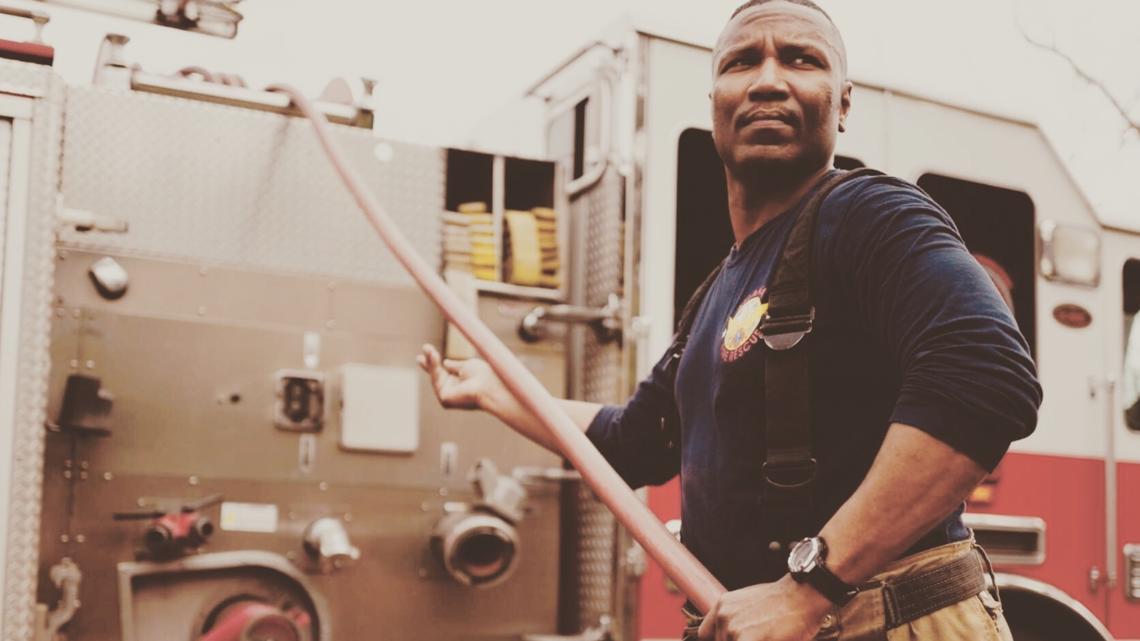
Holmes recently appeared on RuPaul's Drag Race All Stars, an iconic reality show where a group of drag queens compete in challenges to impress the host, which was full circle moment for him.
"I remember when I first saw him in 1993, a supermodel," he said. "I recognized I was looking at another gay man and that was all I needed."
When he got the call to be on the show he admittedly was hesitant. He had never dressed in drag.
"I thought about it because I was one of those people that was sensitive to the image of what it means to be a Black man in America, and I had dated my fair share of men," Holmes said. "They said, 'You have a face for drag.' But I was just like, it's not my thing. But at this point, I said, they're calling me."
Holmes finally got the courage to do it, giving himself "room to be creative."

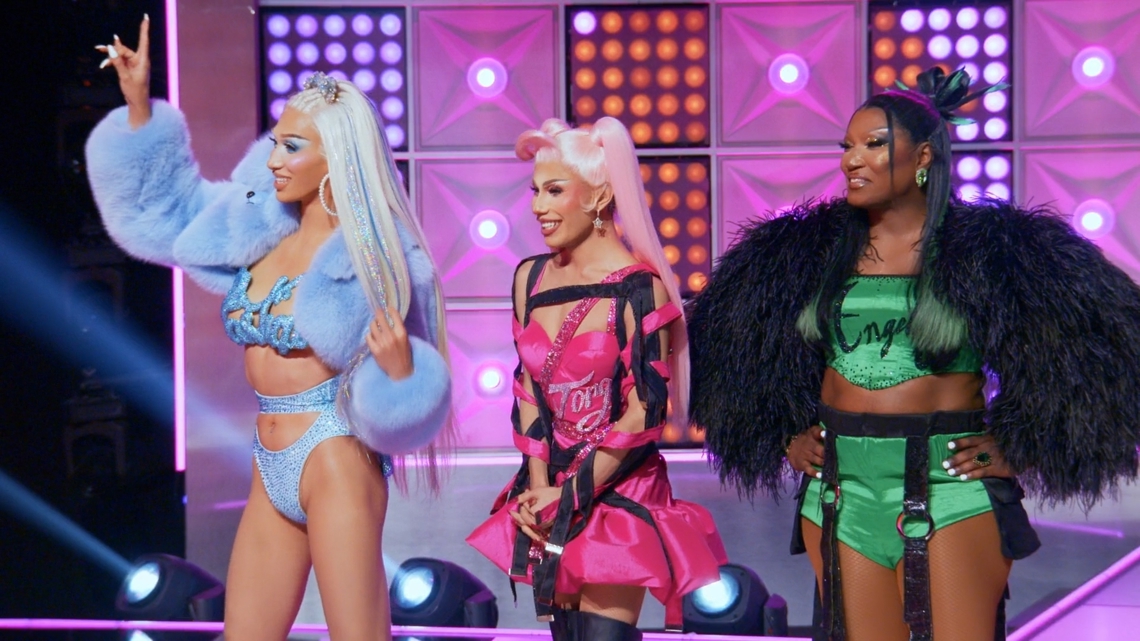
A deeper look into how sexuality is interrupted in the Black community
Holmes shared more about his experiences growing up as a gay individual in a Black household. He added that, like many individuals, he was young once and struggled with how he accepted his idea of his sexuality.
"I really had a hard time when I was 18, 19. I didn't want to be gay," he said. "My grandmother had told me if I prayed, it would go away. And what was the disappointment was no matter what I did, no matter how hard I prayed, no matter how many times I prayed, homosexual desires were not going away."
This experience led Holmes on a journey to accept all parts of his identity.
"I'm Black before I'm gay. And I think that I understand the sensitivity that many in the Black community feel about seeing a man in a dress," Holmes shared. "I think what we always have to understand is the image of a Black person has been so distorted over the years with, whether you look at Sambo or you look at Mammy and Jemima like all of these negative portrayals of the image of Black people has created a sensitivity to anything that does not."
Holmes shared that in the Black community, strength is viewed as something "you are supposed to be," especially as a man. He elaborated on the idea of how masculinity in some communities can be limiting.
"I think that as a gay man, we often knew that we were not going to meet a certain masculine standard, so to speak," he added. "And I think one reason why a lot of gay men are so comfortable in drag is because we don't have any model to follow where we're kind of making the rules as we go along."

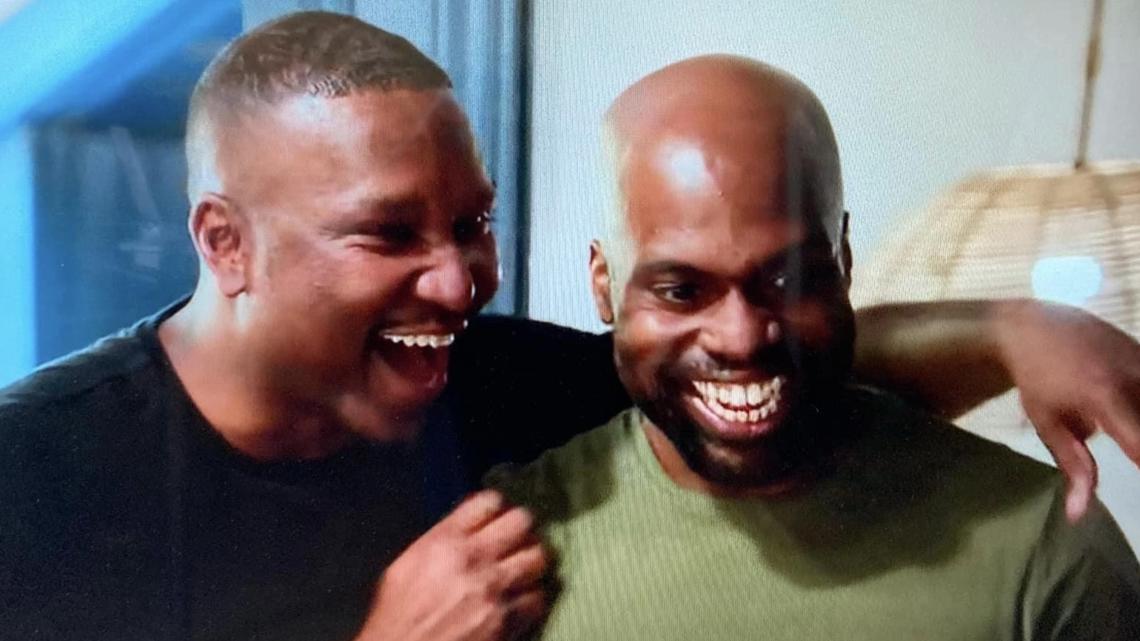
'You're multidimensional,' Holmes says
Holmes stated that he based his identity on other things than just his sexuality.
"I was smart, I was talented, so I could base an identity not just on the one piece of me that was homosexual. There were a range of things that went into who Anaré was," he added. "So I would dare say your sexuality is just one piece. There are other things. You're a son; you're a brother; you're an uncle."
He also reminded others that they do not have to "be boxed in by sexuality," encouraging others to really learn other parts of who people are.
"You're multidimensional," Holmes said. "Really take the time to learn other parts of who you are because that is where you build your confidence."

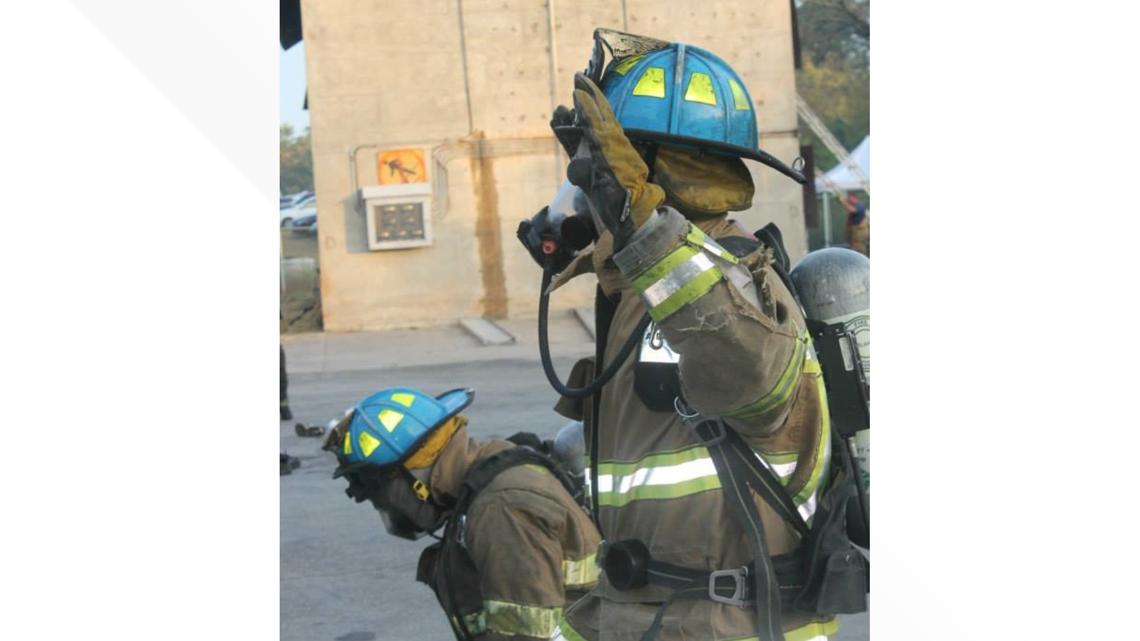
A performance of expression with a sense of community
"I think at the end of the day, it's expression. It's creativity," Holmes said about drag performances. Though he doesn't identify as a drag performer, he said his experience on RuPaul has given him more respect for the craft.
"So if somebody says, 'You can't wear a dress,' we're going to put it on because they told us we couldn't even be us," he added. "And even if I'm perceived as a sin, I had to be okay with saying I could still be used in a way to add value to society."
Holmes shared how drag performance is bigger than the glitz and the glam. Holmes said that drag queens are advocates, helping their community and trying to uplift those who are part of it.
"If anybody has spent any time in drag in a gay club, they have run across a drag queen. She has been an emcee to raise money for HIV. She has been an emcee to raise money for people that need rent money," he added. "I think that is important to recognize (their) contribution to the culture because they're here for us on the front line."
Holmes added that drag performance is a legacy that shows resilience, creativity and strength within the LGBTQ+ community. If drag performers can perform in front of crowds being their authentic self, then he, too, can express pride in who he is.
"Pride is really a declaration that I have found a deeper love within myself. When the world does not give me that love, I am still able to express it and receive it," he said. "And I have demonstrated the courage to stand in my point of view and what really speaks to me - an authentic version of myself."

